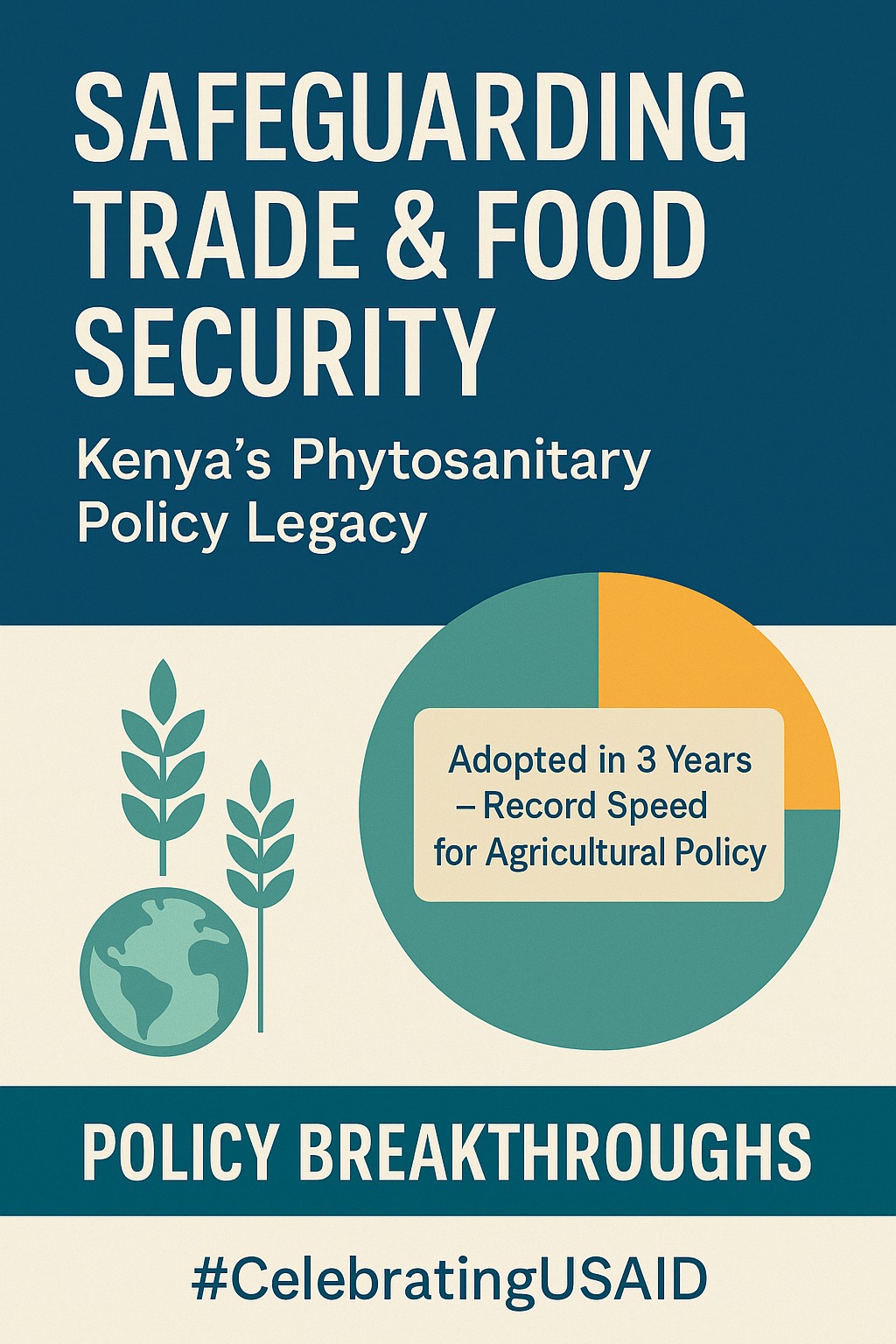One of the lesser-known but truly transformative milestones in Kenya’s agricultural governance was the development of the National Phytosanitary Policy — a process championed by the Ministry of Agriculture and Livestock Development, State Department for Agriculture, through the Kenya Plant Health Inspectorate Service – Kephis, with technical and financial support from the USAID Kenya Crops and Dairy Market Systems (KCDMS) Activity/RTI International — because strong institutions need enforceable food-and-trade laws — and this policy sets predictable standards that protect farmers and consumers and enable rules-based markets.
Why is this policy worth celebrating?
✅ Speed of adoption: It took only three years from initiation to Cabinet approval and launch — a record time in a sector where policies often remain in draft for up to a decade. This demonstrated that with clarity of purpose, strong leadership, and effective partnerships, Kenya can move policy from draft to adoption without endless delays.
✅ Enabling market systems: By providing a clear regulatory framework for plant health, the policy created a conducive environment for market systems development. It positioned Kenya’s produce to meet global phytosanitary standards, enhancing international competitiveness and opening access to lucrative markets.
✅ Safeguarding food security: The policy directly supports the prevention, detection, and rapid response to pest incursions such as Fall Armyworm and MLN. Healthy plants mean better harvests — which translates into food and nutrition security for households across Kenya.
✅ Environmental protection: It promotes sustainable integrated pest management and protects biodiversity by reducing reliance on blanket pesticide use.
✅ Institutional strengthening: By harmonizing laws and building diagnostic, quarantine, and surveillance capacity, the policy provides a roadmap for modern, coordinated plant health systems.
As Prof. Theophilus Mwendwa MUTUI, KEPHIS Managing Director, noted at the 2021 formulation workshop, “Healthy plants equal bumper harvests — which translate to food security.”
🙏 Warm appreciation to USAID KCDMS/RTI for filling this crucial policy gap, and to KEPHIS for leading a process that is already reshaping Kenya’s plant health and trade landscape.
👉 I invite colleagues who were part of this journey to share their reflections, photos, or stories.
Policies may not always grab headlines, but their impact is profound and lasting.
Isaac Macharia, Hellen Mwarey, George Momanyi, Josephine Songa (PhD), Tom Carr, Robert KN Mwadime, Rita Laker-Ojok, Judy Odongo, Dorine M. Mukoya, MSc, SHRM-SCP, PMP®, MIHRM.

Want to share with a friend?
Tags:
No responses yet